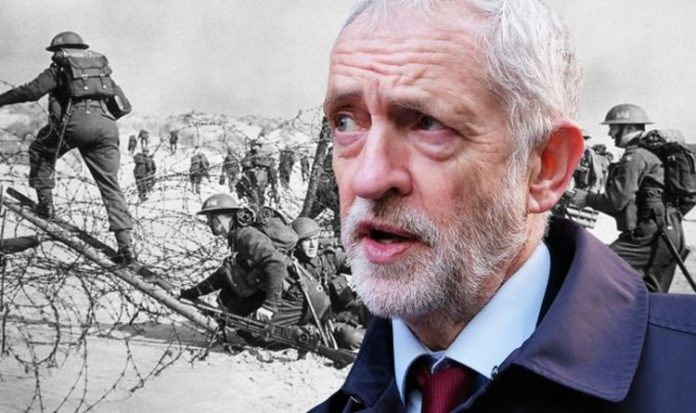Just five months after Jeremy Corbyn officially stepped down as Labour leader, a new book has revealed the conflicts and tensions within the party during his tenure. Written by The Times’ journalists Gabriel Pogrund and Patrick Maguire, ‘Left Out: The Inside Story of Labour Under Corbyn’ describes the behind-the-scenes dramas of the Islington North MP’s four-year rule, which culminated in December with Labour’s worst election performance since 1935. One of the most contentious revelations made by the journalists is that Mr Corbyn failed to stamp out antisemitism in the Labour Party because he could not empathise with “relatively prosperous” British Jews.
The handling of antisemitism by the former Labour leader placed such a strain on his relationship with his closest ally John McDonnell that the pair did not speak “for months”.
Andrew Murray, who was a key member of Mr Corbyn’s inner circle, said the Islington North MP struggled to stand up against anti-Jewish sentiment in the party because the Jewish community in Britain no longer faced the hardships of the early 20th Century.
The book also claims Mr Corbyn rejected plans by his chief of staff Karie Murphy to send him to Auschwitz as part of an attempt at reconciliation with the Jewish community, a decision that infuriated Mr McDonnell.
Mr Corbyn’s wife, Laura Alvarez, rejected such claims on Sunday, and announced on Twitter a new book about how her husband was the victim of a media slur when he was leader would be published to set the record straight.
It is not clear whether Mrs Alvarez will be writing the book herself or whether she is simply endorsing one which is yet to be published.
As the row continues, unearthed reports shed light on other controversial episodes that have characterised Mr Corbyn’s time in office.
In 2017, the former Labour leader said Britain had not fought a just conflict since World War 2, insisting he would only authorise military action as a “genuine last resort”.
Speaking to the Chatham House think tank in central London, Mr Corbyn was asked about British deployment of troops to areas of conflict since the end of World War 2
JUST IN: Poland ‘problematic member’ in EU’s fight for future
He mentioned operations in East Timor and Cyprus, but pointedly omitted a number of key British military campaigns post-1945, such as Suez in 1956, The Troubles in Northern Ireland (1969-2002), the Falklands war in 1982 and more recently, the international campaign against ISIS.
He added: “The world is more unstable than even at the height of the Cold War.
“The approach to international security we have been using since the Nineties has simply not worked.”
Mr Corbyn refused to commit to sending British troops to defend a NATO ally which was under attack, saying he would seek economic and diplomatic solutions to any crisis.
The former Labour, who is a member of the Campaign for Nuclear Disarmament, also raised questions about the future of the Trident nuclear deterrent, saying it would be included in a defence review if Labour won the election.
DON’T MISS:
EU insight: Charles Michel’s ‘NUCLEAR plan’ in case of Macron’s exit [REVEALED]
No deal bluff: Gisela Stuart lifts lid on EU-UK trade negotiations [INSIGHT]
Insider predicts FAILURE of Cummings’ Whitehall revolution [ANALYSIS]
A Labour MP pointed to how Mr Corbyn had supported the IRA when it was bombing mainland Britain in the Eighties, saying: “He’s just anti-western military interventions.”
The Labour leader’s comments were also attacked by Rob Gray, an Army veteran who was jeered for challenging Mr Corbyn over his views on prosecuting veterans in Northern Ireland.
Mr Gray told The Telegraph: “The man’s an idiot.
“Jeremy Corbyn is an insult to friends of mine who died in Northern Ireland because he will not support British troops.
“The man does not care about our war dead, he cares more about the IRA dead, Hezbollah dead.”
Later, Labour MP Catherine West admitted Mr Corbyn might not have sent the task force to liberate the Falklands after Argentina invaded in 1982.
Ms West said Mr Corbyn’s “initial reactions and his instincts…would have been to make discussions, negotiations and talks a higher priority”.
Confronted with Mr Corbyn’s 1982 comments describing the Falklands as a Tory plot, she said: “A lot of things happened in that conflict that not all of us feel very proud of.”







